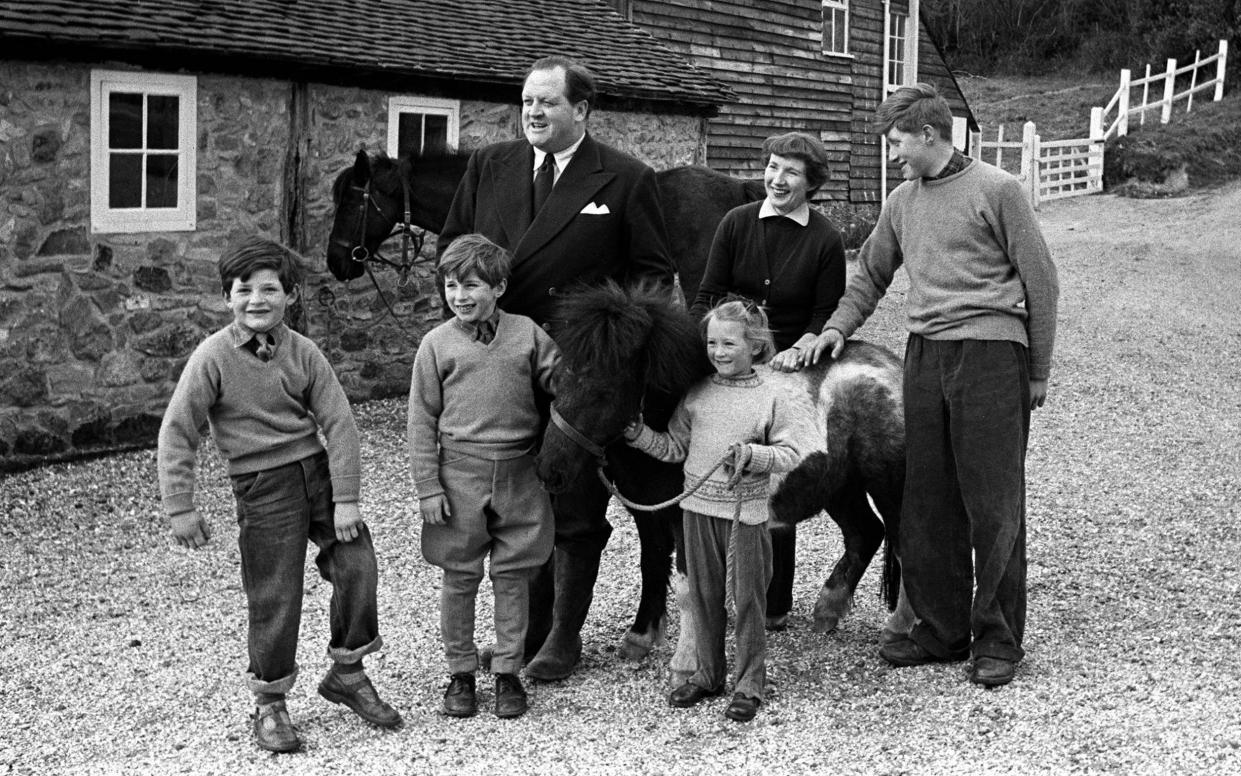I know how cruel motor neurone disease can be – the Dimbleby interview is the most powerful thing I've heard

I almost couldn’t listen to The Bright Side of Life (Radio 4). Its subject matter – the BBC broadcaster Jonathan Dimbleby speaking to his younger brother, the sculptor Nicholas, following Nicholas’s diagnosis with motor neurone disease (known as MND, or ALS) in February this year – felt too raw, too close, too unbearable.
My own mother, Marilyn Imrie, died of MND in 2020, in the middle of a pandemic when it felt as if the whole world was falling apart as well as my own. It was so horrific, so devastating and upsetting, that part of me would like to never talk about it again, even though I think about it all the time. But I’m so glad I did listen, because this was some of the most powerful radio I’ve ever heard. Sometimes you have to look the worst things in life square in the eye.
This is what Nicholas and Jonathan Dimbleby, and their family, have done in making this programme, with bravery, fortitude and love. I listened in floods of tears, and you probably will, too. But you’ll never forget it. MND swiftly and brutally takes away the things that fill life with joy: conversation (it slowly robs you of the ability to speak, while keeping your mind alert); movement and independence. It is a dehumanising disease. And it’s indiscriminate: nobody knows for sure what causes it, or can predict the likelihood of you getting it. It strikes down otherwise healthy adults at any stage of life.
You can be a world-renowned sculptor, like Nicholas Dimbleby, or an exceptionally talented theatre director and producer of radio drama, like my mother, or an international rugby star, like Doddie Weir, or one of the most important scientists of all time, like Stephen Hawking. You can be a healthy weight, a non-smoker, non-drinker, educated, surrounded by friends and family, or none of these things. It doesn’t matter. It’s bleak and cruel.
The doctors I spoke to after my mum’s diagnosis avoided meeting my eye. I learned that doctors tend to hate thinking about a disease that has, so far, confounded every effort of modern medicine. It’s not contagious, and is not caused by any definite lifestyle or genetic factors (although there are some unproven theories, including some genes that seem to make some people slightly more predisposed). It is 100 per cent fatal. There’s something curse-like about it.
But there are wonderful charities – in the UK, the MND Association and MND Scotland – that fund promising research and support families affected by MND. In the last few years, the research has made early breakthroughs that suggest treatment might one day be possible. But this radio programme was as much about life and love as it was about the reality of MND.
When Nicholas described the moment he had to tell his wife and daughter about his diagnosis, he was overcome with emotion. Jonathan started crying then too, and he all but knocked over the microphone as he rushed to hug his “darling” little brother, and for a moment they were just little boys again, together against the darkness.
Last Christmas, before his diagnosis, Nicholas cooked the lunch for 17 Dimblebys and was right in the heart of the “boisterous” conversation. But by February, he was falling over in the street, his muscles flickering under his skin like a lightbulb about to cut out. By May, his voice was deserting him. In the summer, he could no longer eat without choking.
There is no heroism in MND. Instead, Nicholas and Jonathan found and preserved the most human moments of connection among MND’s physical ransacking of the body, celebrating Nicholas’s own gifts and achievements as a sculptor as well as his favourite music and literature. His voice now blurred by the effects of the disease, he reflected on the consolation of creativity, suggesting that, in facing a terminal illness, he is heading towards a destination that all great departed artists have gone before him. So he is not alone, but rather joining the company of Bach and Shakespeare.
The two-part series is produced with elegant beauty by Catherine Carr and Jo Rowntree, with the background sounds of Nicholas’s household infusing the poignant conversations between the brothers with a strong sense of the vivid life that surrounds them. We hear the tick of the kitchen clock, the kitten mewing to be let in, Nicholas’s son making cocktails, birds on the terrace in the sun. At the end, Jonathan read out the credits by announcing the programme was presented by Nicholas Dimbleby, and “interrupted” by Jonathan Dimbleby.
This is a programme all about interruption: the interruption of MND into a life, and the interruption of life’s warmth into even the most bleak moments. The Bright Side of Life is real, gritty, and sad, but never desolate. It’s golden with love.
